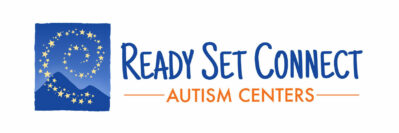The moment you hear the words “autism spectrum disorder,” everything changes. In those early days after diagnosis, the weight of questions can feel crushing. What does this mean for my child’s future? How will I manage therapy schedules? Who can I talk to who truly understands?
For many autism parents, one of the most difficult aspects isn’t just navigating the diagnosis itself, but the profound sense of isolation that can follow. You might feel like you’re the only one struggling to decode meltdowns, celebrate victories others don’t notice, or advocate in spaces where no one seems to get it.
But here’s something powerful: you don’t have to do this alone. Research shows that approximately 66.4% of caregivers of children with autism have participated in autism-specific support groups. Building a strong support network is essential for both you and your child to thrive.
Connect with Other Parents Who Get It
There’s something uniquely powerful about sitting across from another parent who just gets it. Someone who doesn’t need you to explain why you’re celebrating that your child greeted the cashier.
Find Local Support Groups
- Start with your therapy center or pediatrician. Many maintain lists of local support groups or can link you to another parent in your area.
- Contact your child’s school. Special education coordinators often know about parent groups.
- Check local autism organizations. These groups typically sponsor social events for parents and children, maintain parent email lists, and host educational presentations.
- Visit community spaces. Libraries and community centers sometimes host parent meetups.
The best part? You’re building connections with people who know which local doctors have the shortest wait times, which parks have sensory-friendly equipment, and which schools have supportive special education teams.
Explore Online Communities
For many parents, especially those in rural areas or with demanding schedules, online support can be a lifeline. Online support groups provide a virtual platform for parents to connect from anywhere, offering flexibility and accessibility.
Online communities offer unique benefits: 24/7 accessibility when you’re awake at 2AM wondering if anyone else’s child refuses to sleep, anonymity when you need it, diverse perspectives from parents across the country, and no childcare required.
Start Your Own Group
Can’t find what you need? You can advertise at school, in therapy offices and pediatricians’ offices, and find free meeting space in local coffee shops or in a library. Even gathering with two or three other parents for monthly coffee can create meaningful, lasting support.
Build Your Professional Support Team
Your professional support team offers expertise and coordination that are vital to your village. Your team might include BCBAs, care coordinators, psychologists, speech-language pathologists, and occupational therapists.
One particularly valuable role is the care coordinator. Care Coordinators are licensed Social Workers and Child and Family Therapists well versed in working with families and children with autism spectrum disorder. They can help you understand recommendations, access services, and advocate for your child’s needs.
Support collaboration by sharing relevant information across providers, requesting that they communicate with each other about goals, and keeping organized records of evaluations and progress reports. Building a strong healthcare team is essential for ensuring that your child receives the best possible care and support.
Educate Your Inner Circle
Give family and friends basic information about autism, and let them know what autism means for your child and their behavior.. Share age-appropriate articles, explain your child’s specific strengths and challenges, and describe what sensory sensitivities mean in practical terms.
Extended family members, including grandparents, uncles, aunts, and cousins, are often a key part of the support network. When they understand autism, they can become powerful allies.
Start where you are, with what you can access. Even one solid connection can make a difference.
Building your support village isn’t a one-time task; it’s an ongoing process that evolves as your child grows. Some relationships will deepen over time. Others may fade as circumstances shift. That’s okay.
What matters is that you keep reaching out and keep building connections. Every coffee date with another autism parent, every professional who truly listens, every family member who learns about sensory needs, and every online comment that makes you feel less alone contributes to the village that holds you up.
At Ready Set Connect, we’re proud to be part of your village. With over 65 years of combined experience in ABA therapy and autism support, we understand that supporting families means more than just providing services to children. Whether you’re newly navigating an autism diagnosis or years into this journey and needing renewed support, we’re here for you. Let’s build your village together.
Resources:
https://aane.org/services-programs/group-services/support-groups-community-connection

